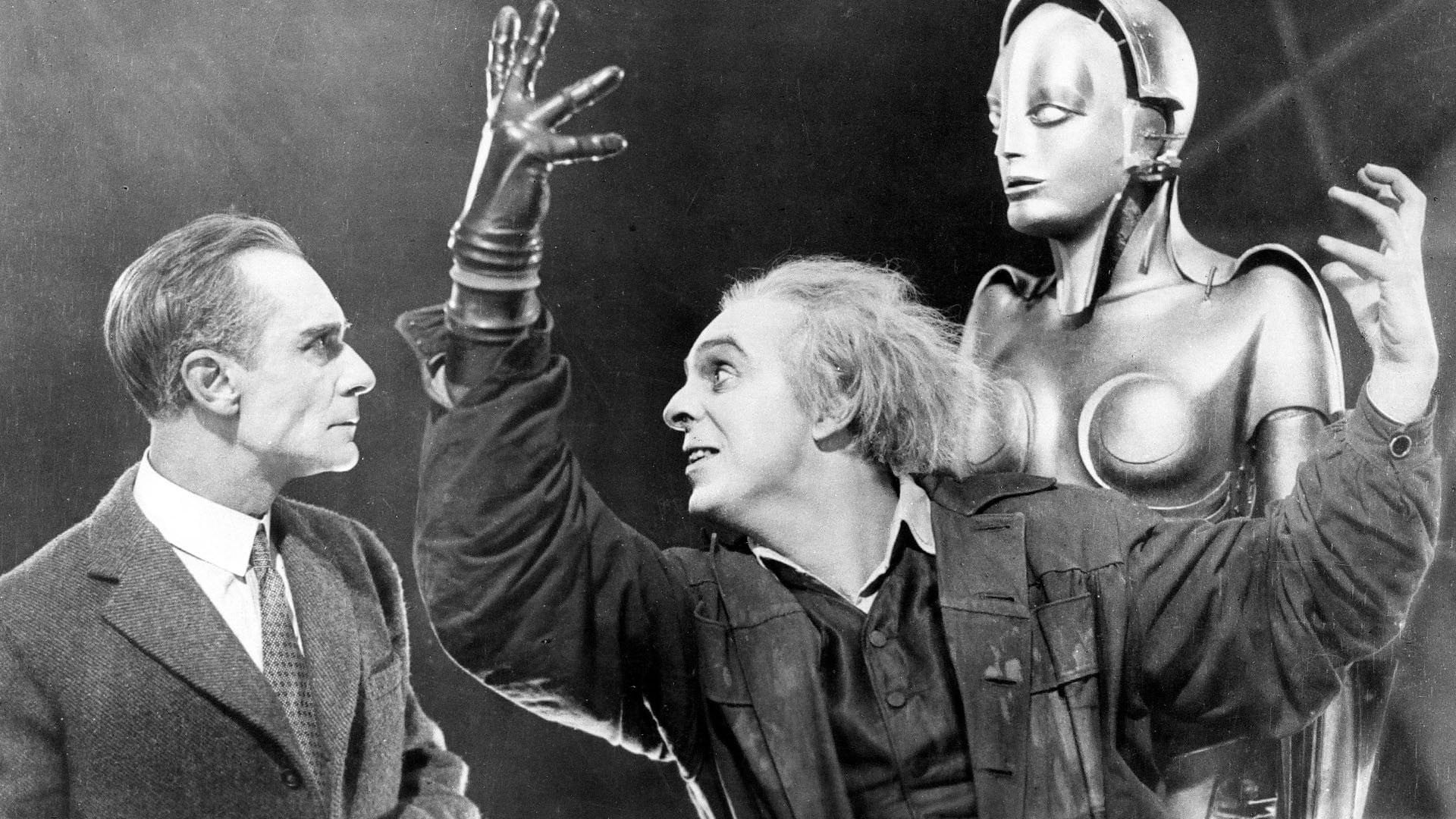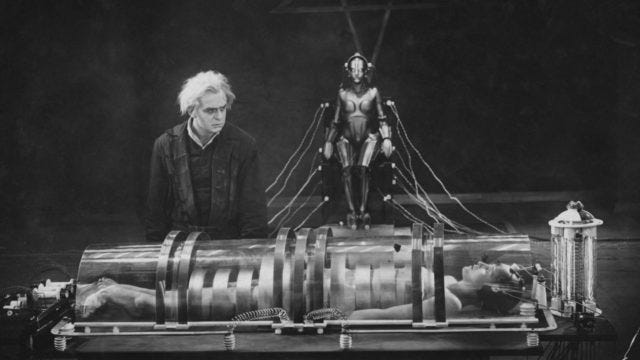Metropolis (1927)

Metropolis (1927), directed by Fritz Lang, is a landmark in the history of cinema, renowned for its groundbreaking visuals, ambitious narrative, and innovative techniques. As a seminal work of science fiction and expressionist cinema, Metropolis has had a profound influence on the genre and remains a touchstone for filmmakers and scholars alike. With its grand scale, intricate set designs, and thematic depth, the film represents a significant achievement in the evolution of filmmaking and storytelling.
Metropolis is set in a dystopian future where society is starkly divided between the wealthy elite, who live in luxury above ground, and the oppressed workers, who toil in harsh conditions below the city. The plot centers on Freder Fredersen (Gustav Fröhlich), the son of the city’s ruler, Joh Fredersen (Alfred Abel). Freder’s life changes dramatically when he discovers the dire plight of the workers and falls in love with Maria (Brigitte Helm), a worker who leads a religious movement advocating for social justice.
The central conflict of the film arises when Freder learns that his father plans to crush the workers’ rebellion using a giant robot, which is ultimately modeled after Maria. Freder, with the help of Maria, attempts to thwart this plan and bring about a reconciliation between the classes. The film unfolds through a series of dramatic and visually stunning sequences that highlight the disparity between the opulent world above and the grim existence below.

Metropolis is rich in thematic content and symbolism, reflecting the social and political concerns of its time. One of the primary themes is the conflict between the working class and the elite. The film portrays a society where the ruling class lives in opulence while exploiting the workers, who are depicted as suffering under harsh and dehumanizing conditions. This class struggle is central to the film’s narrative and is represented visually through the stark contrast between the luxurious upper city and the grim underworld.
The theme of technology and its impact on society is also prominent. The film’s depiction of the city’s advanced machinery and the creation of the robot Maria highlight the potential dangers of technological advancement when it is used for control and oppression rather than progress and benefit. The robot, in particular, symbolizes the dehumanizing effects of technology and the potential for manipulation and exploitation.
Religious and messianic imagery is another significant aspect of the film. Maria’s character embodies a Christ-like figure, preaching the coming of a mediator who will reconcile the divided classes. The robot Maria, designed to imitate her, represents the perversion of this message and the manipulation of religious symbolism for nefarious purposes. The film’s climax, which features a dramatic sequence in which the robot is destroyed, further emphasizes the theme of redemption and the triumph of genuine belief over falsehood.

The visual style of Metropolis is one of its most defining features, showcasing innovative techniques and grandiose design that have influenced countless films since its release. The film is renowned for its elaborate sets, including the iconic Tower of Babel and the intricate machinery of the lower city. The architecture and design of the city are inspired by both Art Deco and Expressionist styles, creating a visually striking and dystopian landscape.
The use of special effects and practical effects in Metropolis was groundbreaking for its time. The film employs techniques such as miniatures, matte paintings, and forced perspective to create the illusion of a vast and technologically advanced city. The robot Maria, designed by artist Walter Schulze-Mittendorff, is a pioneering example of early cinematic special effects, featuring intricate mechanical design and elaborate costume work.
The cinematography, overseen by Karl Freund and Guido Seeber, is characterized by dramatic lighting and dynamic camera movements that enhance the film’s visual impact. The use of shadow and light, along with the film’s dramatic set pieces, contributes to its expressionist aesthetic and helps convey the emotional and thematic depth of the story.

The performances in Metropolis are integral to the film’s impact, with the actors delivering memorable portrayals that enhance the narrative. Gustav Fröhlich’s performance as Freder Fredersen captures the character’s transformation from a privileged youth to a passionate advocate for social justice. Fröhlich conveys both the character’s initial naivety and his eventual determination to address the injustices he witnesses.
Brigitte Helm’s dual role as Maria and the robot Maria is particularly notable. Helm’s portrayal of Maria is imbued with a sense of sincerity and compassion, while her performance as the robot is marked by a more mechanical and unsettling presence. Helm’s ability to embody both roles highlights her versatility and contributes to the film’s exploration of identity and manipulation.
Alfred Abel’s portrayal of Joh Fredersen, the authoritarian ruler of Metropolis, provides a strong antagonist for the story. Abel’s performance conveys the character’s cold ambition and his willingness to use technology and control to maintain his power.

Upon its release, Metropolis was met with a mix of critical and commercial responses. While it was praised for its visual grandeur and innovative techniques, it also faced criticism for its lengthy runtime and complex narrative. Despite these challenges, the film was recognized for its artistic achievements and has since become a classic of silent cinema.
Over the years, Metropolis has been the subject of numerous restorations and re-releases, with efforts to recover and reconstruct lost footage enhancing its historical significance. The film’s influence can be seen in a wide range of subsequent works in science fiction and cinema, including films such as Blade Runner and Star Wars. Its innovative techniques and visual style continue to inspire filmmakers and artists, solidifying its place as a seminal work in the history of cinema.
Metropolis (1927) is a pioneering masterpiece that stands as a testament to the creative and technical achievements of early cinema. Through its ambitious narrative, groundbreaking visual style, and thematic depth, the film offers a compelling exploration of class struggle, technology, and identity. Fritz Lang’s direction and the film’s innovative techniques have left an enduring legacy, making Metropolis a landmark in the evolution of filmmaking and a timeless classic in the genre of science fiction. As a reflection of its era and a source of inspiration for future generations, Metropolis remains a significant and influential work in the history of cinema.











